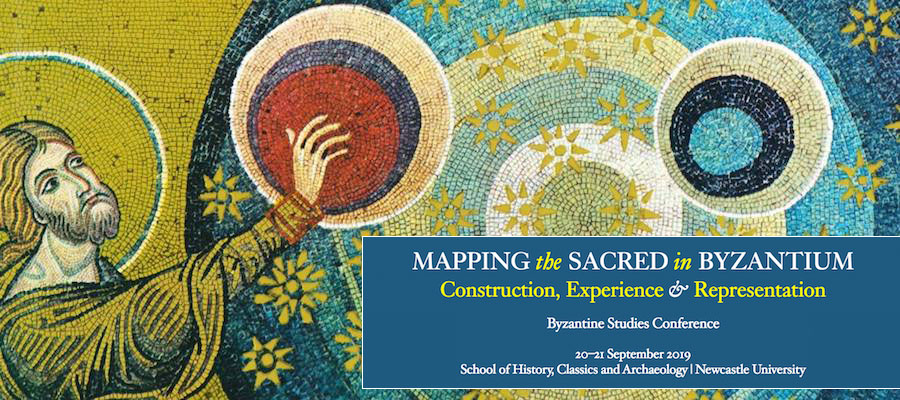Mapping the Sacred in Byzantium: Construction, Experience and Representation, Newcastle University, September 20–21, 2019
The “spatial turn” of the past decades has not only revived interest in space as an object of academic inquiry, but also contributed to new ways of understanding it. Notions of space as a territorially fixed and clearly delimited and confined container or background for human action have been challenged by the works of scholars such as Lefebvre or Bakhtin. Anthropological and sociological frameworks have emphasised the production and organisation of space as social processes through which meanings and narratives (sometimes conflicting) are created and ascribed. Spaces are thus permeated by, and shape, beliefs, ideas and meaning, which reflect on their configuration, as well as the use and symbolic value they are socially given. Novel approaches have focused on the experience and expression of emotional responses engendered by spaces, such as spiritual empowerment, as the social has given way to the personal experience of constructing, perceiving and perpetuating space. For the particular case of creating sacred space, Lidov’s hierotopic vision has brought to the fore the performative spatial aspect of iconic imagery. Likewise, in literary texts, spatial representation is not only understood as an indispensable canvas for the plot, but as a vehicle for cultural meaning, norms and hierarchies of values. Consequently, space sheds light on cultural environment and lived experience.
This conference explores new ways to think of, and assess, the construction, experience and representation of sacred space in Byzantium, aiming to contribute to the research on spatial paradigms and practices. It addresses spatial themes, both theoretically and empirically, from the perspective of literary studies, with insights from archaeology, art history and theology.
Registration closes SEPTEMBER 8, 2019
